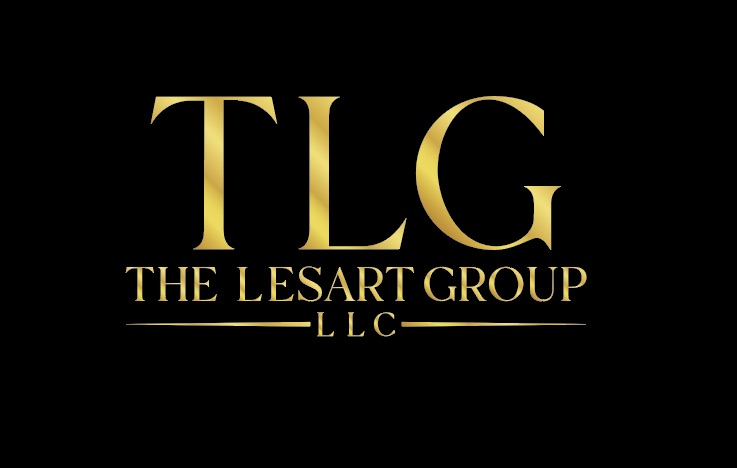
Partner With
The Lesart Group
Expand Your Opportunities. Grow With a Proven Prime.
CONTRACTOR ENGAGEMENT PORTAL
Join The Lesart Group’s Federal Contracting Ecosystem
The Lesart Group partners with qualified vendors, subcontractors, and prime contractors committed to delivering compliant, ethical, and high-impact solutions across federal, state, and local government agencies.
This portal is designed to evaluate alignment, assess capabilities, and build long-term, performance-driven partnerships that support agency missions and expand collective contracting capacity.
PARTNER WITH THE LESART GROUP
Expand Your Opportunities. Grow With a Proven Prime.
The Lesart Group partners with high-performing businesses across the country to deliver exceptional results on federal, state, and local contracts. As a rapidly growing government contractor, we actively expand our vendor network to align with companies that share our values, standards, and commitment to excellence.
If your company provides specialized services, skilled labor, professional expertise, or technical capabilities — we want to hear from you. Becoming a subcontractor with The Lesart Group connects you to new opportunities, long-term relationships, and high-value projects across multiple industries.
WHY SUBCONTRACT WITH
THE LESART GROUP?
Consistent Contract Flow
We pursue high-value contracts across federal, state, and commercial markets. Subcontractors gain access to opportunities otherwise out of reach.
Prime Contractor Advantage
As a prime contractor on diverse projects, we offer subcontractors a pathway into multi-year, multi-million-dollar engagements.
Diverse NAICS Coverage
We partner with subcontractors across:
• Construction & Trades
• Marine & Dredging
• Environmental Services
• Logistics & Transportation
• IT & Technology
• Business Consulting
• Janitorial & Facilities
• Healthcare & Social Services
• Administrative & Professional Services
• Specialty Certified Businesses (MBE, WOSB, SDVOSB, HUBZone, etc.)
Fast Onboarding
Our onboarding process is structured, compliant, and streamlined for rapid evaluation and integration.

Strategic Growth Partnerships
We build long-term partnerships with companies aiming to expand their footprint in government contracting.

WHO WE PARTNER WITH
We collaborate with companies of all sizes, including:
Trade & construction contractors
Marine & dredging support providers
Environmental & waste management firms
Logistics & transportation companies
Professional services firms (admin, HR, consulting)
IT, systems, and cybersecurity providers
Janitorial & facilities support companies
Healthcare, behavioral, and community service providers
Educational & training service organizations
Specialty and certified small businesses
If your company performs services under our NAICS codes, you are eligible to partner with us.

WHAT WE REQUIRE FROM SUBCONTRACTORS
To maintain compliance and quality across every contract,
subcontractors must provide:
Active business registration
Valid business licenses (where applicable)
Proof of insurance (COI)
W-9
Capability Statement
Past Performance (if applicable)
Certifications (MBE, DBE, WOSB, SDVOSB, HUBZone, etc.)
Competitive pricing & professionalism
All submissions remain confidential.
SUBCONTRACTOR REGISTRATION PROCESS
Step 1 — Complete the Registration Form
Fill out the intake form below with your business details and capability information.
Step 2 — Upload Required Documents
Upload your capability statement, W-9, COI, certifications, and other supporting documents.
Step 3 — Qualification Review
Our team evaluates your capabilities, experience, compliance history, and alignment with upcoming opportunities.
Step 4 — Add to Vendor Database
Approved subcontractors are added to our internal database for future contract opportunities.
Step 5 — Opportunity Matchmaking
We contact you when your services align with a contract we are bidding or have been awarded.
INDUSTRIES WE
FREQUENTLY SUBCONTRACT
Construction & Trades
Marine & Dredging Support
Environmental Services
Janitorial & Facilities Management
Logistics & Transportation
IT & Technology
Business Consulting & Admin Support
Healthcare & Social Services
CAPABILITY INFORMATION
EXPERIENCE
UPLOAD YOUR DOCUMENTS – Accepted: PDF, DOCX, XLSX, JPG, PNG.
PARTNERSHIP INTEREST
COMPLIANCE QUESTIONS
Checkout: Secure Your Business Structure Today!
Once you’ve completed your consultation and selected your package, you’re just a few clicks away from setting up your business!
Contact Us
Florida Location
255 Primera Blvd Ste 160
Lake Mary, Florida 32746
407-904-0399
Website: lesartgroup.net
Connect
Copyright © 2024 . All rights reserved.